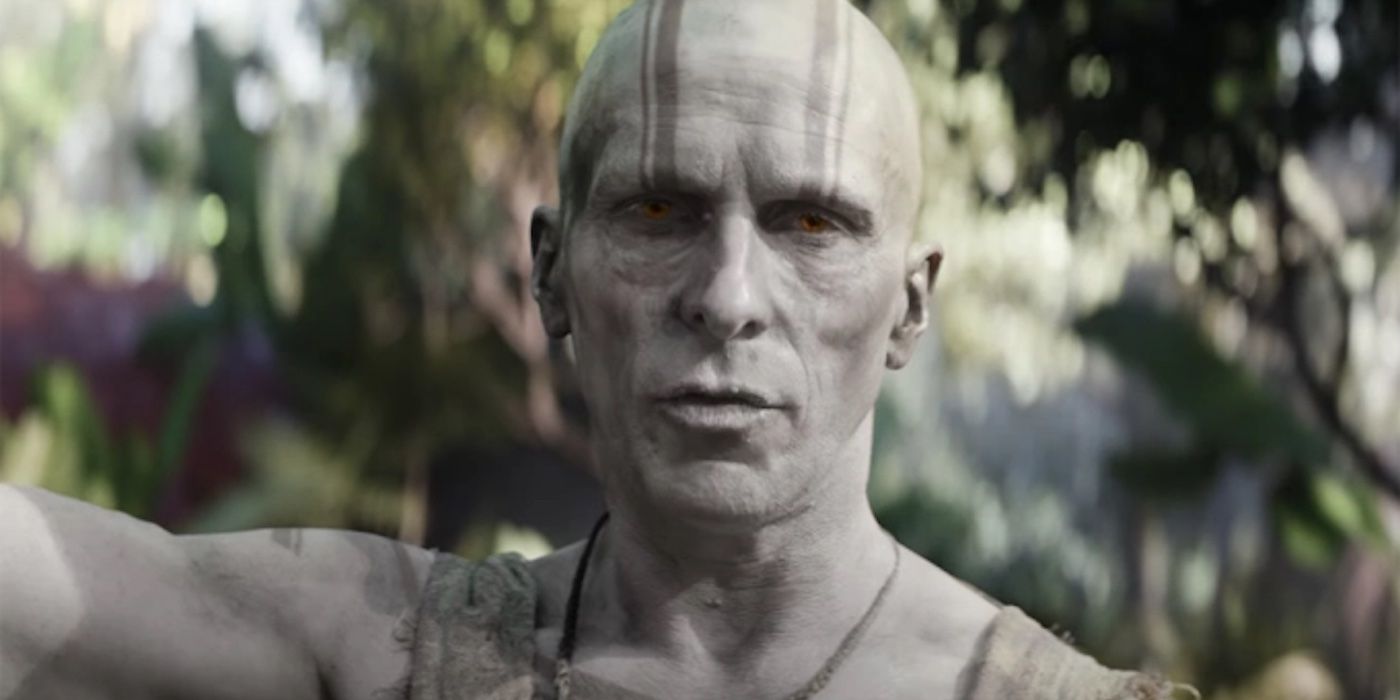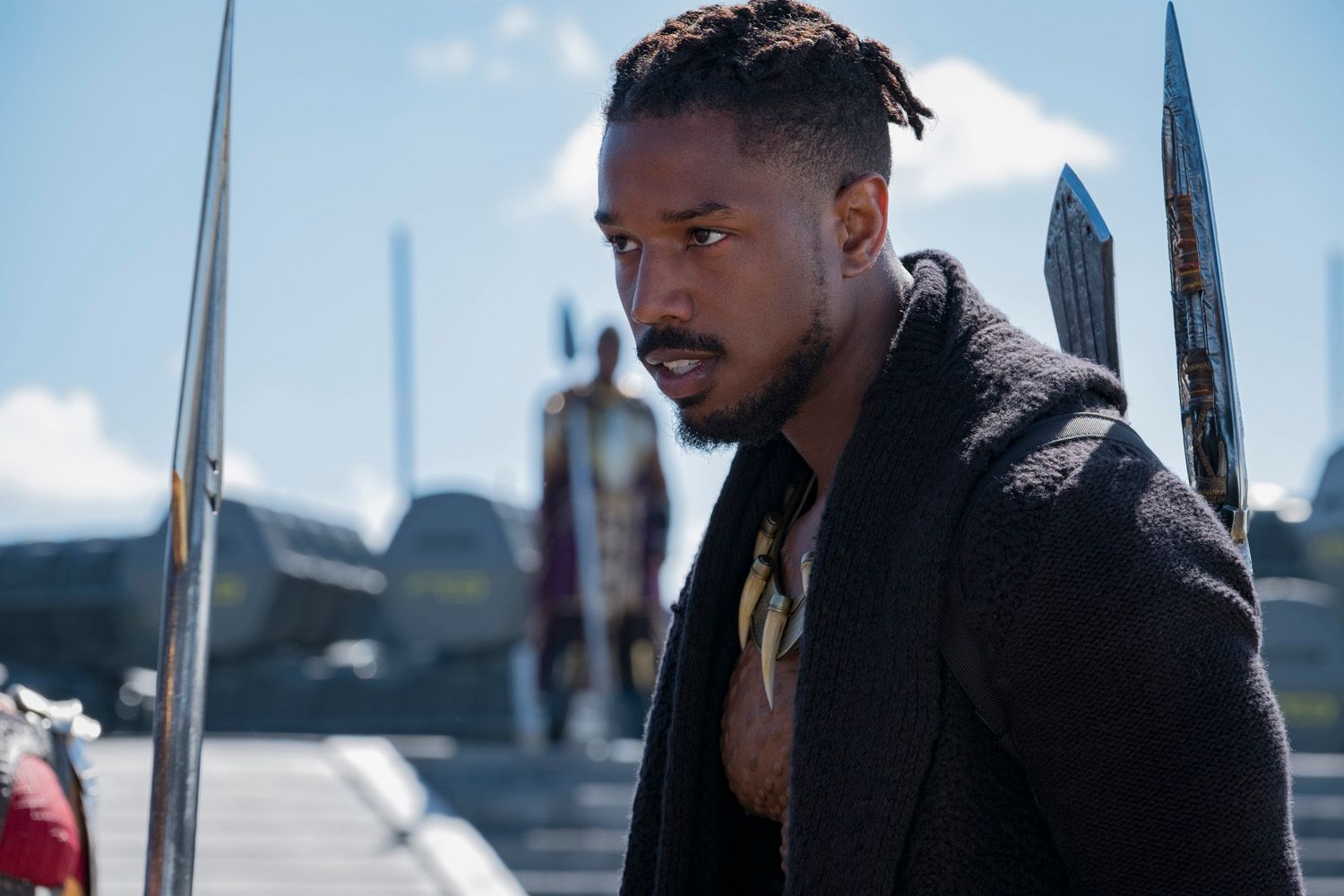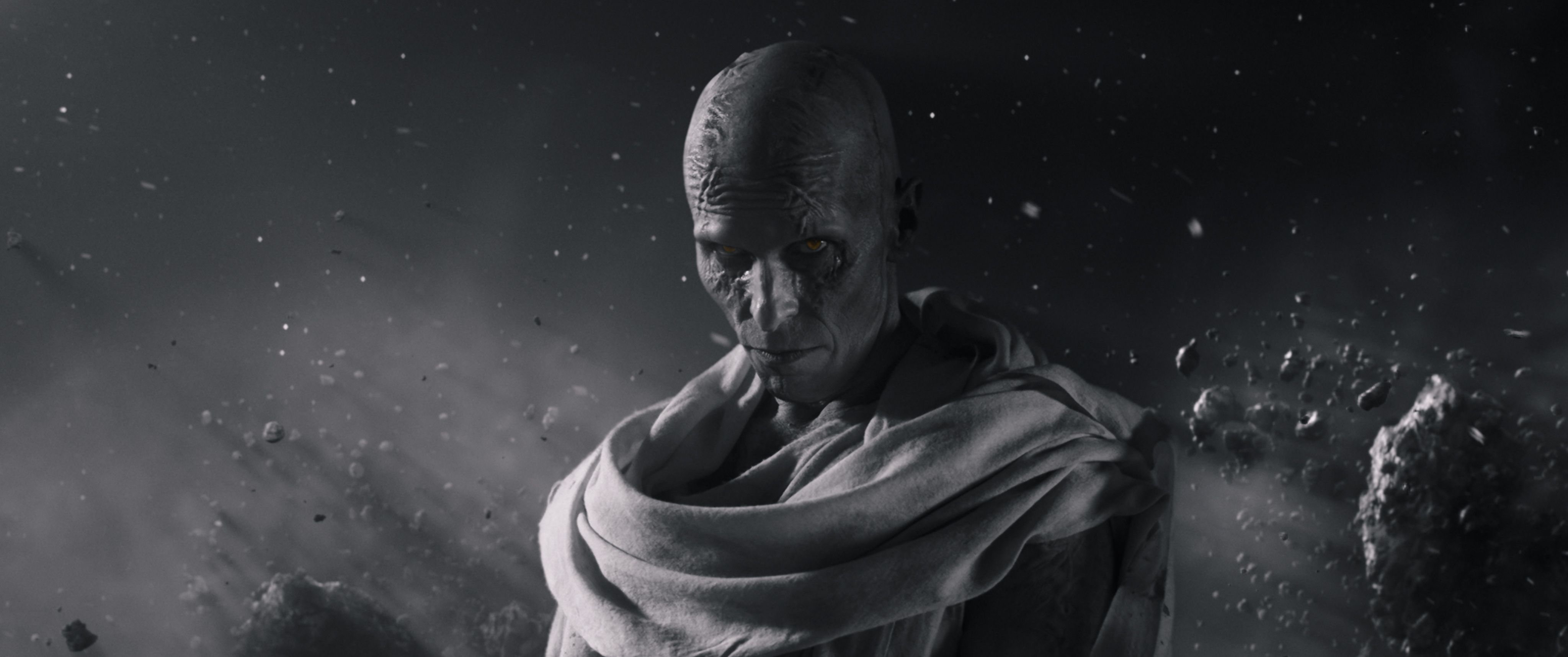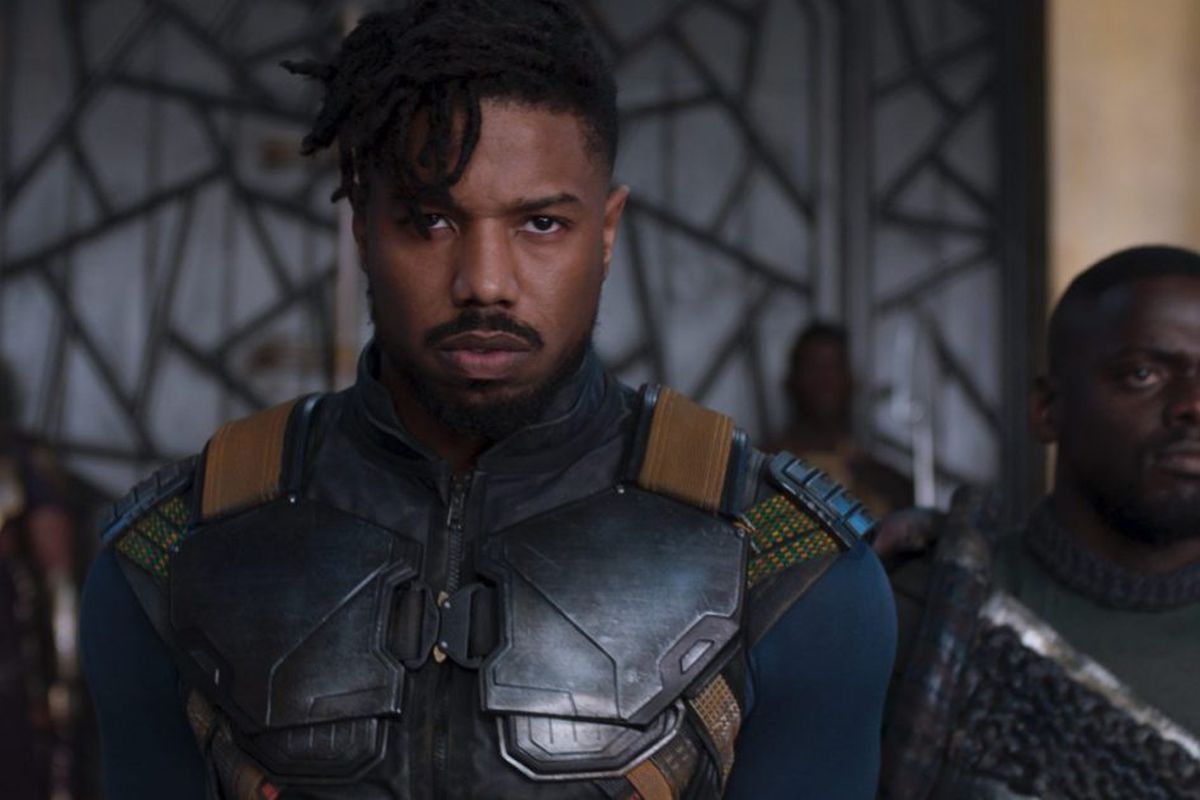Editor's Note: The following article contains spoilers for both Thor: Love and Thunder and Black Panther.Once upon a time, when the Marvel Cinematic Universe was still in its infancy and the very first Avengers film had only just released, there was one major complaint surrounding the MCU films that was universal amongst both fans and critics: Every single villain who didn't have the name Loki was kinda weak.
We all remember the heroes and the adventures that they embarked upon long after their solo projects, but the foes that they face are often left behind to fade into obscurity. Many of them honestly just feel like "evil" versions of the hero, having many of their exact same powers and abilities. Iron Monger was an evil Iron Man, Abomination was an evil Hulk, Yellowjacket was an evil Ant-Man, and so on and so forth. These adversaries simply did not have the same amount of staying power as the titular protagonists, so it became pretty clear, pretty quickly that there needed to be a bit more focus on the rogue's gallery department for future films.
Thankfully, things finally started to change midway through Marvel's third phase of films. All of a sudden, we were finally seeing villainous characters that were not only far more memorable than their predecessors but were also far more well-written altogether. Out of nowhere it just became hit villain after hit villain. Ego, Vulture, Hela, Mysterio, Mandarin (the real one), Green Goblin, and of course Thanos. All of them were incredible antagonists that were just as strong if not stronger than their "do-gooder" opponents from a characterization perspective.
However, there are two other villains who have that little something extra that pushes them from great adversaries into near-perfect antagonists. Two individuals who strike a perfect balance of being unapologetically villainous and downright bad to the bone, while also being relatable enough to the point where the audience can truly understand and even sympathize with them. Two characters that are so good that if Marvel decided to name the movie after them instead of the hero, nobody would complain.
The two combatants are Killmonger (Michael B. Jordan), the vengeful usurper King of Wakanda, and Gorr (Christian Bale), the god butchering sadist with a grudge. When they're first introduced in Black Panther and Thor: Love and Thunder, respectively, they initially seem like men who have thrown their moral compasses out the window and will kill anybody who gets in the way of their goals. While that's true to various extents, their origins and motivations behind their evil acts are what make them multidimensional figures that captivate the audience.
Killmonger has been thought of as one of the most complex and interesting MCU antagonists ever, although newcomer Gorr may be challenging his claim to that throne, so to speak. So today, we'll be comparing and contrasting the two foes to see who's the all-around best character. We'll be taking into account many factors, including their accuracy to their comics counterpart, the actors' performances, the characters' designs, and finally their general motivations/plans to find out who's the baddest (and the saddest) of them all.
Comics Counterparts
The cliff notes versions of these characters' stories are similar enough to their film adaptations, but there are a few differences that are worth mentioning.
Eric Killmonger in the comics, unlike his film counterpart, is not the lost cousin of T'Challa (Chadwick Boseman) nor does he have any direct relation to the royal family. However, his own family and the royals were bitter enemies, and Killmonger still held them responsible for their deaths. Killmonger trained himself for years to the mental and physical peak for an inevitable confrontation with King T'Challa, attending MIT University and serving as a henchman under the notorious Kingpin. His earliest scheme involved him posing as an aspiring student who just wanted to come home to Wakanda. This was only the first of many confrontations with the Black Panther, as he and T'Challa would repeatedly come to blows for several years, but Killmonger's quest for vengeance eventually led to his demise (until he was revived by a symbiote, but that's a whole other story).
Gorr's comic origin takes place several million light-years away from Killmonger's, on a planet so remote that it doesn't even have a name. Gorr lived a life of devotion to his gods along with his family despite their incredibly harsh living conditions. Instead of just his daughter like in Love and Thunder, Gorr had a mother, father, wife, and son, all of whom perished despite his constant prayers. Now broken and on the brink of madness, Gorr eventually came across a fierce battle between two gods, one of which was on the brink of death. Instead of being mercilessly mocked by the god, this higher being was begging for help from Gorr, which only enraged the orphaned widower as the gods did nothing to save his family. The other god's weapon bonded to him, creating the Necrosword, which in comics was the first symbiote created by the elder god Knull instead of a physical mystical blade. Gorr used the weapon to cut down the being, vowing to slay all beings who dared to call themselves gods, which of course led him to a certain Norse God of Thunder.
Killmonger's familial connection in the Black Panther movie certainly makes him more interesting, and it's a great change that felt necessary to flesh him out more. However, if we're talking pure accuracy, Gorr's origin is pretty darn close to the source material.
Michael B. Jordan & Christian Bale
Every great villain needs a great actor to play them, and Killmonger and Gorr won the lottery when it comes to that front.
Killmonger is brought to life by Michael B. Jordan, whose role in Black Panther shouldn't be a surprise given he's appeared in every other film by director Ryan Coogler. It's probably fair to say that Jordan has made a name for himself as a leading man instead of a villain, but that lack of experience of being evil turned out to be more of a benefit than a detriment. Jordan plays the role of a cocky anti-hero whose acts of violence are actually justice for historical systemic oppression. Even though his character's motives are allegedly pure, he still relishes the chance to flex his combat muscles and enjoys a true challenge. Still, moments like having to shoot his partner and revisiting memories of his deceased father work even better in Jordan's authentic emotion that he provides.
Gorr being played by Christian Bale is a pretty interesting and ironic case. Not only is it cool to see him play a villain after starring as Batman in The Dark Knight trilogy, but his portrayal of Gorr seems to have quite a few more similarities to the Joker than the Caped Crusader. Comic book movie fans get to see a side of Bale that they didn't see with his Batman movies, with Gorr being a pathetic groveling worshipper before turning into an avenging sociopath who thinks the universe would be better off without gods. Cut to some time later, and Gorr's endless killing seems to have taken a mental toll on the God Butcher. Bale's giggly and giddy demeanor shows that the character has not only become desensitized to his murders but has even grown to greatly enjoy them.
As entertaining as Bale's performance is, some could argue that it's a bit over-the-top and cartoonish. Jordan's portrayal still stands the test of time, however, and the nuanced performance only adds more depth to the character.
Creative Character Design
We're taught to never judge a book by its cover, but sometimes appearances can amplify impressions, especially when it comes to bad guys.
Killmonger sticks with modern clothing for most of the movie, before sporting a tactical suit and an antique tribal mask that's a nice nod to the one he occasionally wore in the comics. Unfortunately, that look doesn't last long, but we do get one of the coolest addition which are Killmonger's "crocodile scars", which are markings all over his torso that he proudly states are representations of every person he's killed. His third and final look is a gold-plated Black Panther suit, which is an upgrade for the plot, but kind of a downgrade in terms of how it looks. We preferred the comic-accurate mask.
There was a touch of controversy when Gorr's MCU design was revealed, showing that he wouldn't look like the cross between Voldemort and Bib Fortuna that he is in the comics. Still, in a world populated by bright and dynamic colors, Gorr's design being literally black and white is pretty brilliant. His brighter skin tone only appears after he claims the Necrosword for himself, but that's only the start of his sinister transformation. When we see him later, Gorr has mutated further with razor-sharp teeth and bright yellow eyes, plus he's now rocking a snazzy minimalist white shawl that matches his complexion.
Killmonger's design isn't terrible, but Gorr's not only looks great, but it actually enhances his role in the story and makes him appear legitimately scary and intimidating.
Malicious Motivations
From the perspectives of T'Challa and Thor (Chris Hemsworth), Killmonger and Gorr are just other villains they have to fight, but by the end of their respective conflicts, they realize that there's a lot more to them.
Killmonger's father, N'Jobu (Sterling K. Brown), the brother of King T'Chaka (Atandwa Kani) and uncle of T'Challa, grew tired of his home country's stance of neutrality when it came to the oppression of Black people around the globe outside of Wakanda, so he decided to take matters into his own hands and plan an uprising, even working with a known Wakandan terrorist Ulyses Klaue (Andy Serkis) who killed the traitor prince's kinsmen in the process. T'Chaka was forced to put down his brother, but he didn't anticipate that Erik would find his father dead in their apartment, Panther claws ingrained in his chest.
Years later, Killmonger, now a veteran in both the American military and freelance mercenary work, is ready to make his play for Wakanda and claim the throne. Even though he kills Klaue and uses his death to gain the trust of the skeptical Wakandans, Killmonger's motivations are still to follow in his father's footsteps and use Wakanda's endless resources to "liberate" the Black population across the globe. It sounds like a noble quest until it becomes apparent that Killmonger doesn't want to topple authoritarian rule, he just wants to create one where he and radicals like him can remain in charge. In an epic final battle, T'Challa is able to defeat his cousin. T'Challa tries to tell Killmonger that they can heal him, but instead, Killmonger looks at the sunset over his lost homeland, his dying words: "Bury me in the ocean, with my ancestors that jumped from the ships, because even they knew that death was better than bondage." Despite trying to kill a countless number of people, T'Challa understands his cousin's plight, and his story finally made T'Challa realize that he and his country have an obligation to share their resources with those who need them.
Like Black Panther, Thor: Love and Thunder begins with Gorr's origin, where the future God Butcher is seen trekking through a barren wasteland, carrying his sick and dying daughter with him. Gorr officially becomes the last of his kind when his daughter dies in his arms, and Gorr sees a miraculous oasis in the distance. There he sees his own god, whom he worshipped and prayed to throughout all his hardship. He finds the god relishing in a victory over the wielder of the Necrosword, and the god clearly shows no love or affection for the worthless, childless wretch that is groveling before him. In a blind rage, Gorr uses the Necrosword to strike down the selfish god, vowing that all other gods will share in the same fate.
When a now ultra-powerful, sharp-toothed, and downright terrifying Gorr finds Thor, he doesn't want to kill him (at least not yet). Gorr's slaughtering of various deities may have provided entertainment to the Butcher, but he discovered a way to make all gods disappear with a single wish. Gorr wishes to find Eternity, an ancient being as old as the universe itself, who will grant a single wish to anyone who is able to seek them out. Gorr has discovered that the Bifrost is the key to entering Eternity's domain, and he now seeks to steal Thor's weapon, Stormbreaker, to end his quest before the Necrosword ultimately kills him. Gorr succeeds despite the Necrosword being destroyed, but when he sees Eternity, Thor convinces him that he could restore the life of his own daughter instead of taking the lives of countless others. In his dying breath, Gorr does just that, his daughter by his side once more. Afterward, he asks Thor to care for his daughter and give her a life that she wasn't able to have, finally giving Thor what he's missing so much: a family.
Killmonger and Gorr may have spent most of their time with dreams of a genocidal rampage, and there's an argument to be made whether they were redeemed in death, but it's impossible to deny that their journeys and tragic past didn't directly result in the hero having a dramatically different worldview than satisfied their character arcs in their respective films. Not only do the two antagonists challenge their protagonists, but in a roundabout sort of way, they helped the heroes become even better people. The main difference is that Killmonger's conclusion leads to major changes for the rest of the MCU while Gorr's conclusion leads to a major change for Thor as a character.
Conclusion
Ultimately, which MCU baddie you prefer is really just gonna come down to personal preference.
If you want a Shakespearian villain whose motivations are believable and even understandable despite his radical methods, then Killmonger is the easy choice. If you want a more "mustache-twirling" vigilante who packs in a couple of good scares but still has a sympathetic origin, then Gorr is your guy. That being said, we're not just gonna cop out and say "they're both good" and we're still gonna crown a winner:
Gorr, we love ya, and you're a great new addition to the MCU rogue's gallery, but at the end of the day, Killmonger just still has the edge as the ultimate sympathetic villain.
It was a tough race to be sure, but the thing that gives Killmonger that slight advantage over Gorr is the relevance that his story has to modern society. The commentary he adds to race relations and the dangers of radicalization is something that is very relevant in our current world. Yes, you could argue that he falls into that familiar MCU trap of being an evil Black Panther, but here that repetition works since Killmonger is essentially a mirror version of T'Challa. A version of T'Challa that didn't grow up in a wealthy, advanced society and had to work his way up in the real world along with all the massive challenges and trauma that came with it.
Gorr put up a good fight, being able to steal every scene he's in with some infectious (and horrifying) charm, but at the end of the day, there's still just no beating the one true false King of Wakanda.
Thor: Love and Thunder is now in theaters!

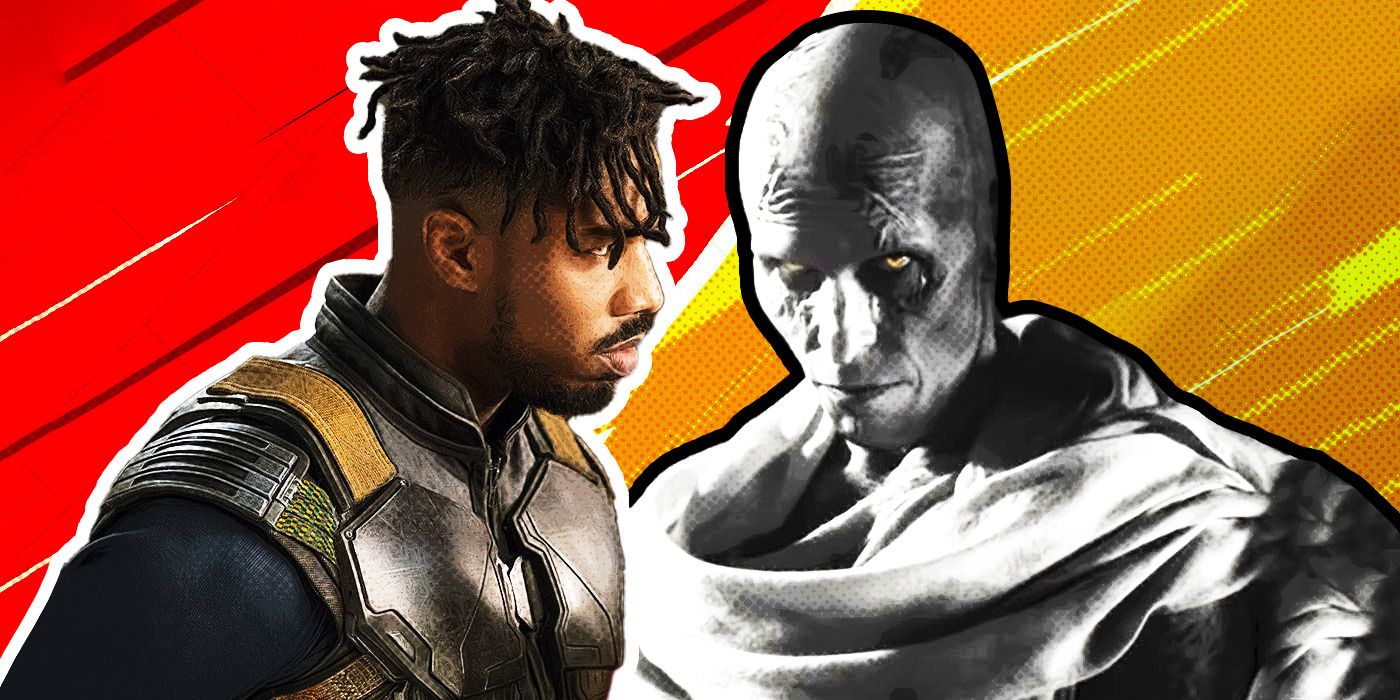
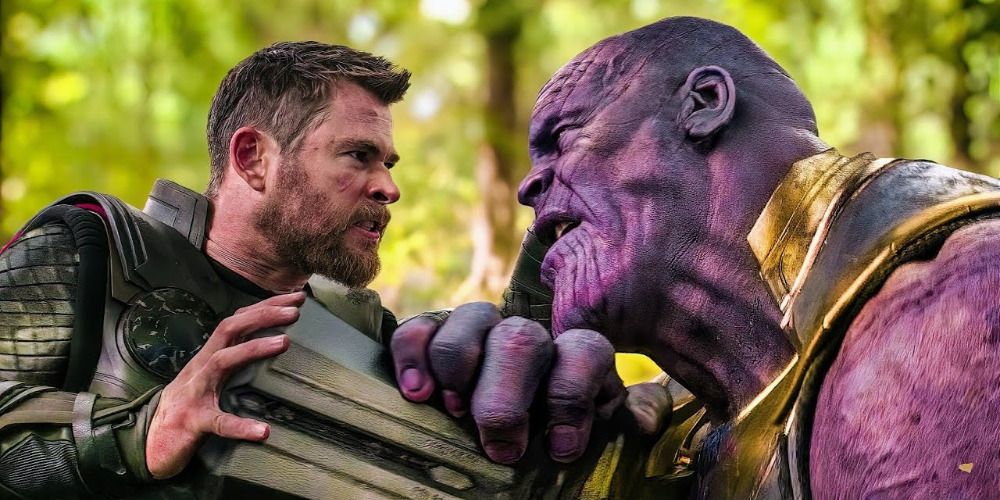
.jpg)
